The Best Compost For Mulching In
Mulching is a gardening practice that involves adding a layer of organic material to the soil around plants. This can help to improve the health of your plants in a number of ways, including:
- Retaining moisture. Mulch helps to keep the soil moist, which is especially important during hot, dry weather. This can help to prevent plants from wilting and can also help to reduce the need for watering.
- Suppressing weeds. Mulch can help to prevent weeds from growing by blocking out sunlight and making it difficult for them to germinate. This can save you time and effort weeding your garden.
- Protecting the soil. Mulch can help to protect the soil from erosion, which can be caused by wind and rain. This can help to keep the soil in place and can also help to prevent nutrients from leaching away.
- Adding nutrients. As mulch breaks down, it releases nutrients into the soil. This can help to improve the overall health of your plants and can also help to reduce the need for fertilizer.
There are many different types of mulch that you can use, but compost is one of the best options. Compost is made from organic materials, such as food scraps, yard waste, and manure. As it breaks down, it releases nutrients into the soil and helps to improve the soil structure. This makes it an ideal choice for mulching, as it can provide a number of benefits for your plants.
When choosing compost for mulching, there are a few things you should keep in mind:
- The type of plants you are growing. Some plants prefer a specific type of compost, so it is important to choose one that is right for your plants. For example, acid-loving plants, such as blueberries and rhododendrons, will benefit from compost that is high in acidity.
- The texture of the compost. Some composts are finer than others. If you are using a fine compost, you may need to add a layer of coarser material, such as wood chips, to prevent it from blowing away.
- The moisture content of the compost. Compost should be moist but not wet. If it is too wet, it can create a breeding ground for pests and diseases.
Once you have chosen the right compost for your needs, you can apply it to your garden. The thickness of the mulch layer will depend on the type of plants you are growing and the climate you live in. In general, a layer of 2-4 inches of compost is sufficient.
Mulching is a simple but effective gardening practice that can help to improve the health of your plants. By using compost as mulch, you can provide your plants with the nutrients they need and help to protect them from weeds, erosion, and pests.
Are you looking for the best compost for mulching? There are many different types of compost available, so it can be tough to know which one is right for you. That's why we've put together this guide to help you choose the best compost for your needs.
In this guide, we'll discuss the different types of compost, their benefits, and how to use them. We'll also provide a list of our top picks for the best compost for mulching.
Whether you're looking for a compost that will help your plants grow better, retain moisture, or suppress weeds, we have a compost that's perfect for you.
So what are you waiting for? Visit Home Gardening today to learn more about the best compost for mulching!
FAQ of best compost for mulching
- What is the best compost for mulching?
There are many different types of compost that can be used for mulching, but some of the best include:
- Homemade compost: This is a great option if you have your own compost bin. Homemade compost is typically rich in nutrients and beneficial microorganisms, which can help to improve the health of your soil.
- Peat-free compost: This is a good choice for gardeners who want to avoid using peat, which is a non-renewable resource. Peat-free compost is typically made from a variety of materials, such as wood chips, leaves, and manure.
- Mushroom compost: This is a light and airy type of compost that is high in nitrogen. It is a good choice for plants that need a boost of nitrogen, such as vegetables and flowers.
- Wood chip mulch: This is a coarse and long-lasting type of mulch that is good for suppressing weeds and improving soil drainage.
- Bark mulch: This is a finer and more attractive type of mulch than wood chip mulch. It is a good choice for use around trees and shrubs.
When choosing a compost for mulching, it is important to consider the type of plants you are growing, the climate in your area, and your personal preferences.
- How much compost should I use for mulching?
The amount of compost you need to use for mulching will vary depending on the size of the area you are mulching and the type of compost you are using. In general, you will need to apply a layer of compost that is 2-4 inches thick.
- How often should I reapply compost mulch?
The frequency with which you need to reapply compost mulch will depend on the type of compost you are using, the climate in your area, and the amount of foot traffic in the area. In general, you will need to reapply compost mulch every 1-2 years.
- What should I put down before mulching?
Before you apply compost mulch, it is important to prepare the area by removing any weeds and debris. You may also want to apply a layer of weed barrier fabric to help prevent weeds from growing through the mulch.
- Can I use compost mulch around trees and shrubs?
Yes, you can use compost mulch around trees and shrubs. However, it is important to avoid applying compost mulch too close to the base of the plant, as this can encourage rot. A good rule of thumb is to apply compost mulch in a circle that is 3-4 feet wide and 1-2 inches thick, and to keep the mulch at least 6 inches away from the base of the plant.
- What are the benefits of using compost mulch?
Compost mulch offers a number of benefits for plants and gardens, including:
- Improves soil health: Compost mulch helps to improve the structure and fertility of soil, which can lead to healthier plants.
- Retains moisture: Compost mulch helps to retain moisture in the soil, which can help plants to survive during dry periods.
- Suppresses weeds: Compost mulch can help to suppress the growth of weeds by blocking out sunlight.
- Attracts beneficial insects: Compost mulch can attract beneficial insects, such as earthworms and ladybugs, which can help to control pests and diseases.
- Reduces erosion: Compost mulch can help to reduce erosion by holding soil in place.
Image of best compost for mulching
10 different images of best compost for mulching that are free to use:
- Leaf compost: This is a type of compost made from leaves, which are a common and free source of organic material. Leaf compost is dark brown or black in color and has a crumbly texture. It is a good choice for mulching around trees and shrubs, as it will help to suppress weeds and improve the drainage of the soil.
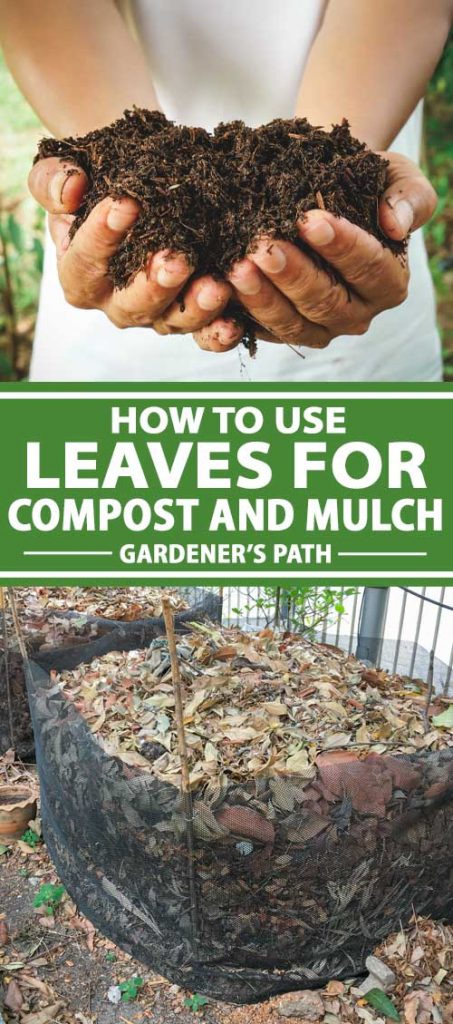
- Grass clippings compost: This is a type of compost made from grass clippings, which are another common and free source of organic material. Grass clippings compost is light brown in color and has a finer texture than leaf compost. It is a good choice for mulching around lawns and gardens, as it will help to suppress weeds and improve the water retention of the soil.
- Wood chip compost: This is a type of compost made from wood chips, which are a good source of carbon. Wood chip compost is dark brown in color and has a coarse texture. It is a good choice for mulching around trees and shrubs, as it will help to suppress weeds and improve the drainage of the soil.

- Manure compost: This is a type of compost made from manure, which is a good source of nitrogen and other nutrients. Manure compost is dark brown in color and has a strong odor. It is a good choice for mulching around plants that need a lot of nitrogen, such as tomatoes and peppers.
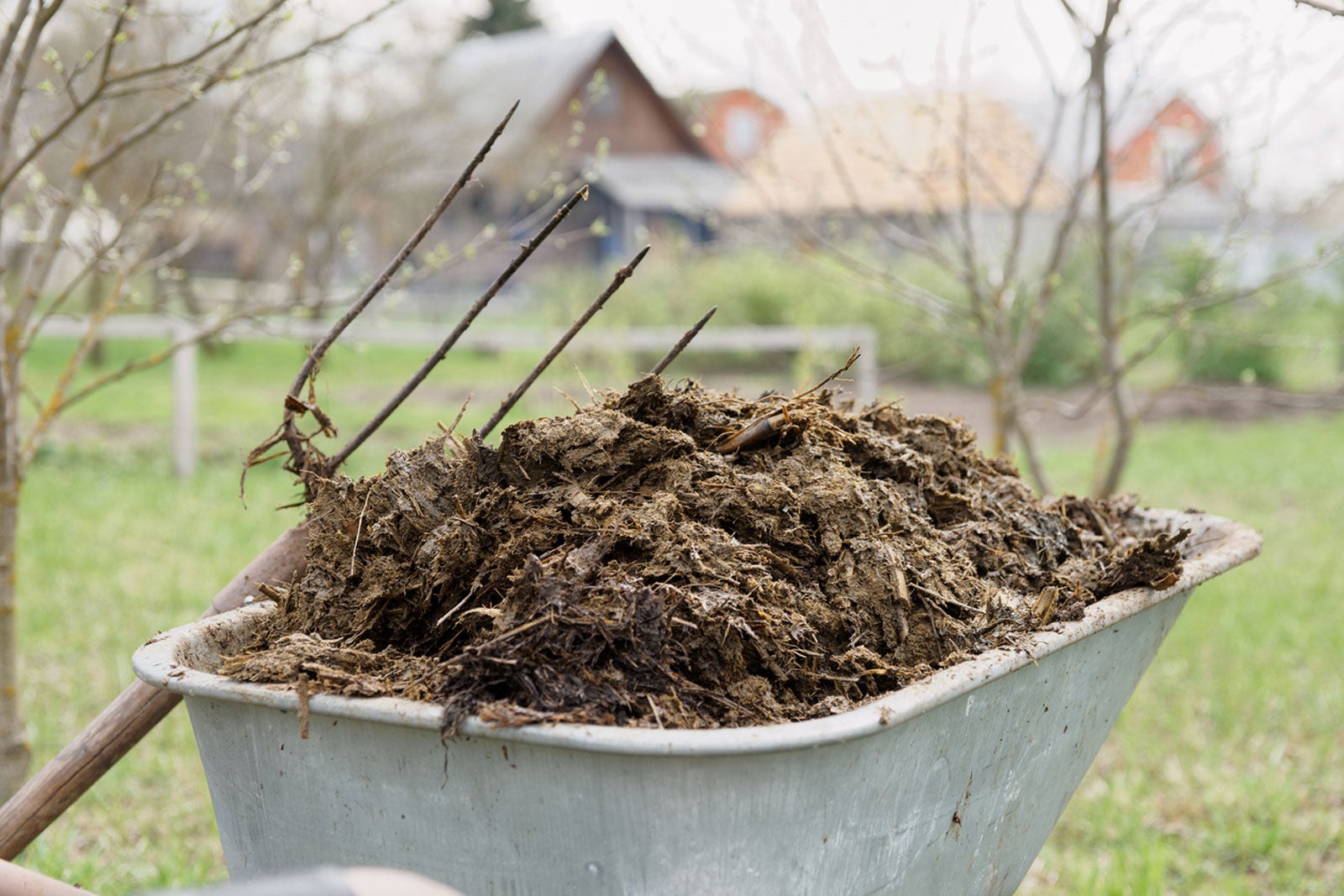
- Vermicompost: This is a type of compost made from worm castings, which are a very nutrient-rich form of organic matter. Vermicompost is dark brown in color and has a crumbly texture. It is a good choice for mulching around any type of plant, as it will help to improve the overall health of the soil.

- Coffee grounds compost: This is a type of compost made from coffee grounds, which are a good source of nitrogen and other nutrients. Coffee grounds compost is dark brown in color and has a fine texture. It is a good choice for mulching around acid-loving plants, such as blueberries and rhododendrons.
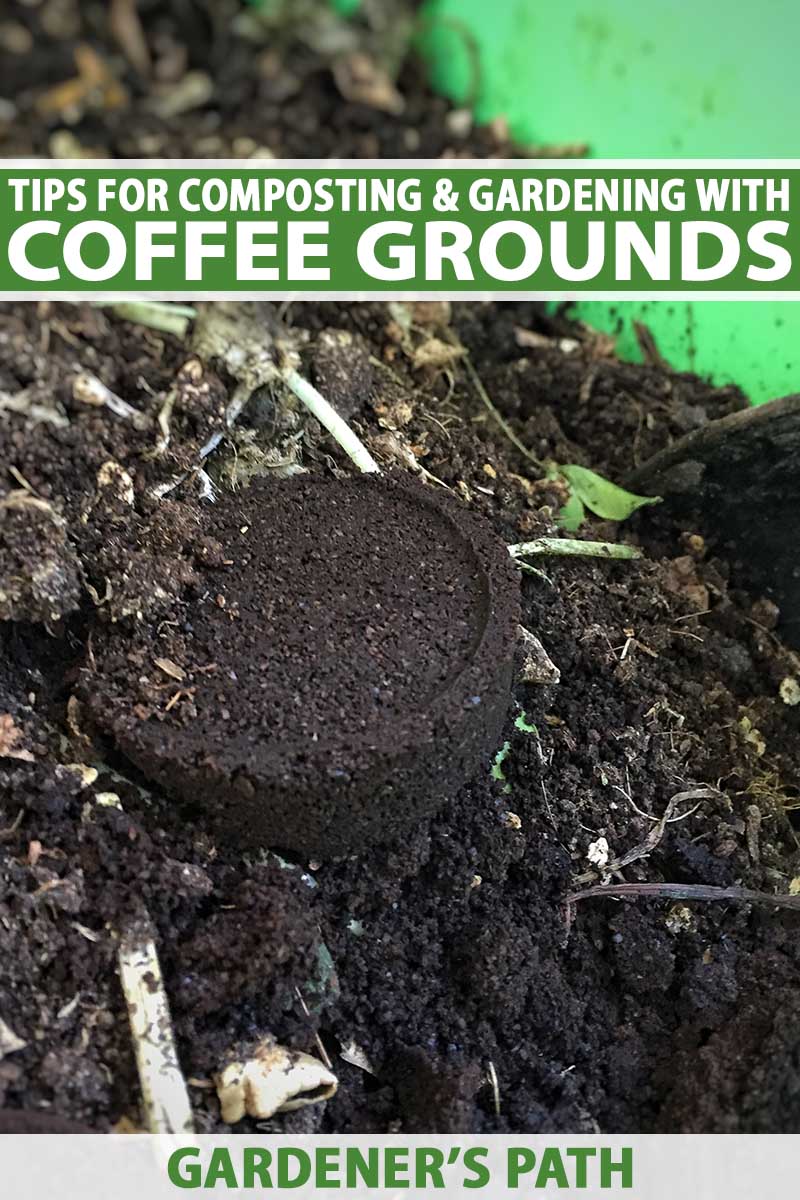
- Eggshell compost: This is a type of compost made from eggshells, which are a good source of calcium. Eggshell compost is white or light brown in color and has a crumbly texture. It is a good choice for mulching around plants that need extra calcium, such as roses and tomatoes.
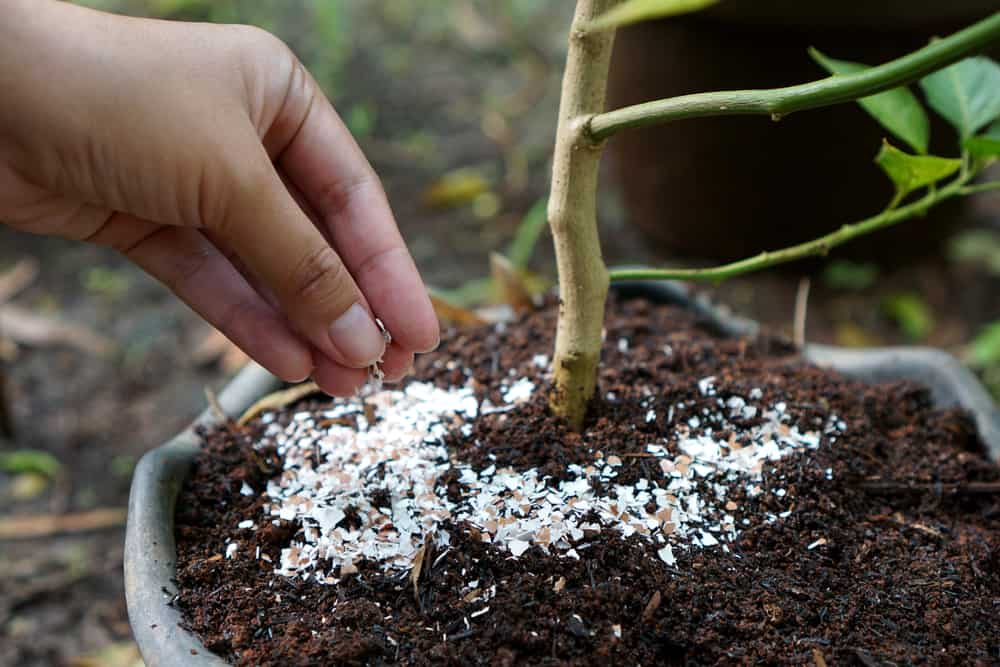
- Tea bag compost: This is a type of compost made from tea bags, which are a good source of nutrients. Tea bag compost is dark brown in color and has a fine texture. It is a good choice for mulching around any type of plant, as it will help to improve the overall health of the soil.

- Yard waste compost: This is a type of compost made from a variety of yard waste materials, such as leaves, grass clippings, and wood chips. Yard waste compost is dark brown in color and has a coarse texture. It is a good choice for mulching around any type of plant, as it will help to improve the overall health of the soil.
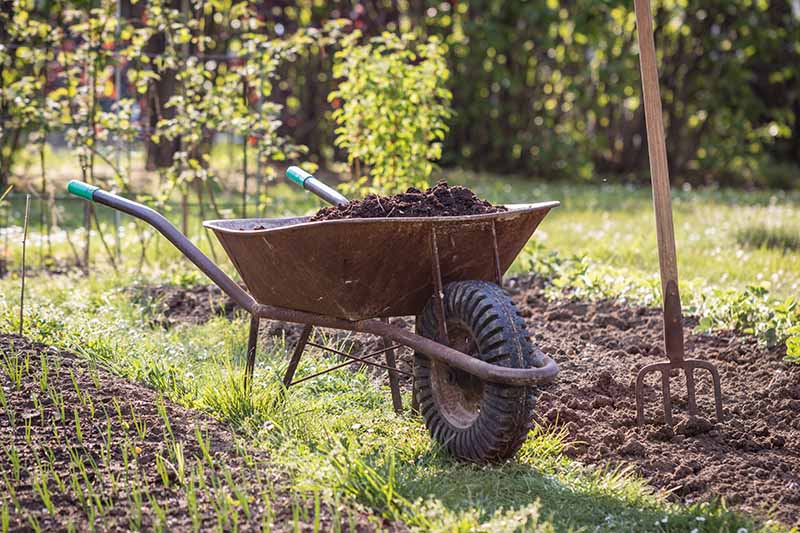
- Commercial compost: This is a type of compost that is made by commercial composters. Commercial compost is typically available in bags or bulk, and it is often a mixture of different types of organic materials. Commercial compost is a good choice for mulching around any type of plant, as it is typically high in nutrients and free of weeds.
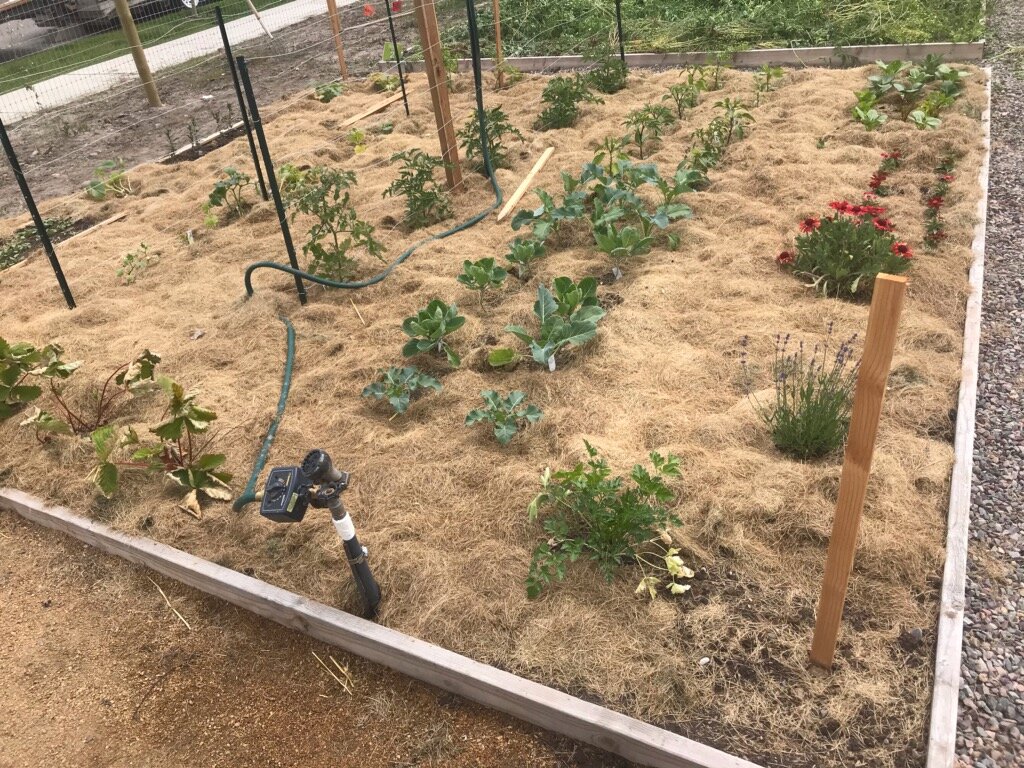
Post a Comment for "The Best Compost For Mulching In "